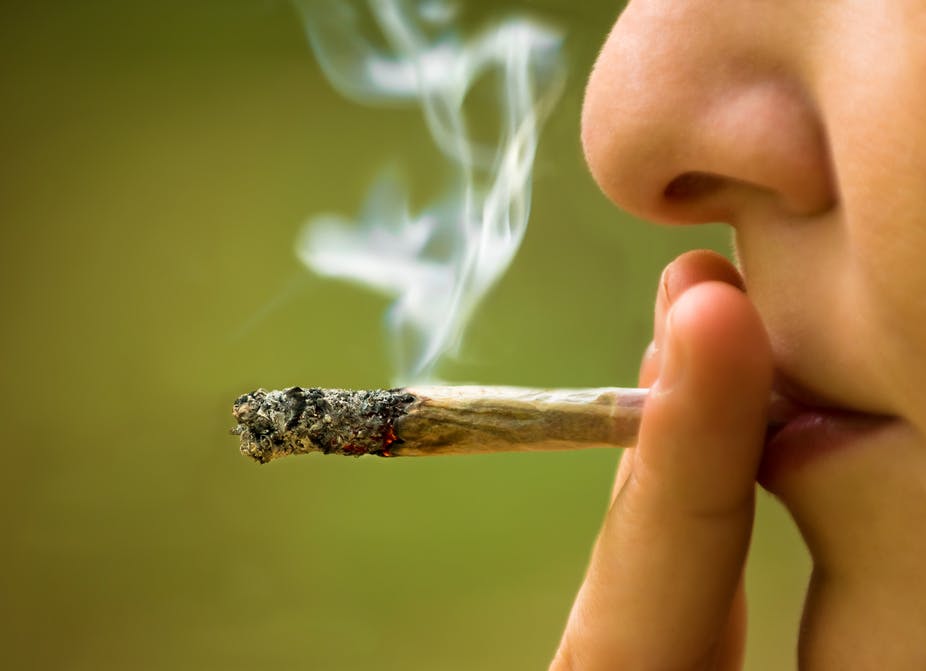The wave of marijuana legalisation that's swept across the United States in recent years has been fueled in part by the popular belief that pot is essentially harmless.
But a new study shows that some heavy users will experience withdrawal symptoms while coming down from their high.
About 1 in 10 frequent cannabis users reports symptoms like anxiety, hostility, insomnia and depression after the intoxicating effects of weed start to wear off, said senior researcher Deborah Hasin, a professor of epidemiology at Columbia University's Mailman School of Public Health.
These folks might be using pot to help treat their anxiety or depression, unaware that they're putting the cart before the horse, Hasin said. "There's a lot of overlap between the symptoms of cannabis withdrawal and the symptoms of anxiety or depressive disorders," Hasin said. "People may actually mistakenly feel that cannabis is helping a depression or an anxiety disorder, when what's happening in reality is they're perpetuating a withdrawal syndrome. Using cannabis makes the symptoms go away, but it's not a good solution to it."
Advocates of marijuana legalization acknowledge that pot can cause withdrawal symptoms, but point out that its addictive potential is far less than other products that have been legally available to consumers for decades.
"The fact that these withdrawal symptoms are relatively mild and short-lived is one of the reasons why cannabis possesses a far lower dependence liability than most other controlled substances, including alcohol and tobacco," said Paul Armentano, deputy director of NORML, a group advocating for reform of marijuana laws.
"For instance, the profound physical withdrawal effects associated with tobacco are so severe that many subjects who strongly desire to quit end up reinitiating their use," Armentano explained.
"In the case of alcohol, the abrupt ceasing of use in heavy users can be so severe that it can lead to death. Simply withdrawing from caffeine can lead to a number of adverse side effects, like rebound headaches," he said.
Is pot harmless?
At this point, 30 states have laws that legalize marijuana in some form. Nine states and Washington, D.C., have made pot legal for recreational use, while the rest allow for use of medical marijuana.
To test the notion that pot is harmless, Hasin and her colleagues analyzed data gathered by a 2012-2013 federal survey on health problems caused by alcohol and other substance use. During the survey, federal researchers conducted face-to-face interviews with more than 36,000 participants across the United States.
The new study focused specifically on responses from more than 1,500 survey participants who reported using pot three or more times a week during the previous year, Hasin said. They were considered frequent or heavy marijuana users.
About 12 percent of heavy pot users reported symptoms that align with those of cannabis withdrawal syndrome, a condition outlined in DSM-5, a diagnostic manual produced by the American Psychiatric Association.
These included nervousness or anxiety (76 percent), hostility (72 percent), sleep difficulty (68 percent) and depressed mood (59 percent), researchers reported.
Physical symptoms were reported less frequently, but heavy users were more likely to experience headaches, shakiness or tremors, and sweating, the study found.
People with a history of mood or personality disorders had a greater risk for experiencing withdrawal symptoms, Hasin said.
Are teens twice as likely to become addicted?
Frequency of use within a week was not significantly associated with withdrawal symptoms, but the number of joints smoked per day did make a difference, researchers found.
Smoking six or more joints per day was associated with cannabis withdrawal syndrome, while smoking five or fewer joints per day was not.
"If people are using cannabis frequently and they're experiencing these symptoms, they should really consider cutting down on their use, at least to see what happens," Hasin said.
"While many people can use cannabis without harm, there are some people who have adverse consequences from using it," she continued. "If they're frequent users and they're experiencing some of these symptoms, they should consider the possibility that cannabis may be causing rather than helping them with those symptoms."
Emily Feinstein, executive vice president for the Center on Addiction, praised the study for shedding new light on the relative safety of marijuana use.
"Misinformation and misunderstanding about marijuana is rampant," Feinstein said. "Marijuana is addictive, and people who are dependent on the drug exhibit the same symptoms as those with other addictions, including cravings and withdrawal." She was not involved with the study.
"When teens and young adults use marijuana, they are nearly twice as likely to become addicted as adults. In the debate about legalizing recreational marijuana, we can't lose sight of that," Feinstein continued. "We need to take the public health risks associated with expanded use of the drug seriously."
The new study was published recently in the journal Drug and Alcohol Dependence.
Fuente: www.health24.com
